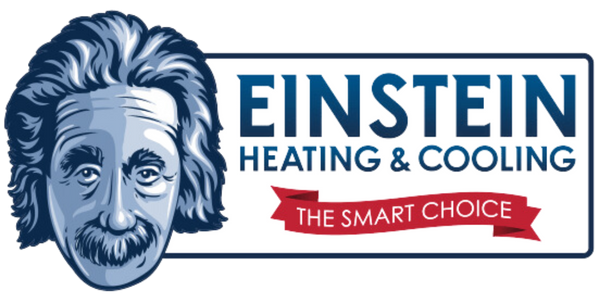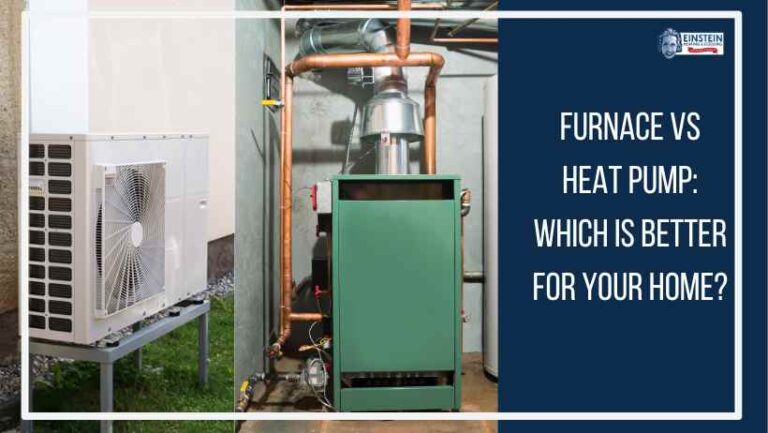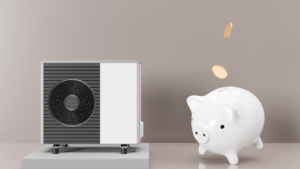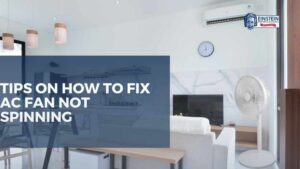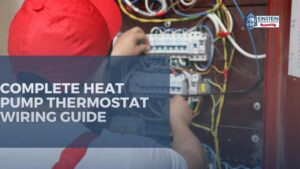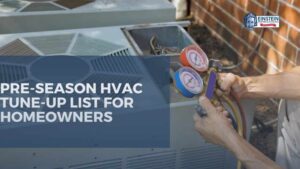As winter approaches, homeowners might try to decide which heating system is more suitable for their needs, weighing the pros and cons of each: furnace vs heat pump. To shed light on this topic, we’ll explore various factors and their pros and cons that influence the choice between a furnace and a heat pump.
Factors to Consider
1. Efficiency
Fuel Efficiency
When it comes to the fuel efficiency of furnaces, these heating systems exhibit commendable performance.
- Furnace:
- Pros: Gas and oil furnaces are lauded for their efficiency in transforming fuel into heat, ensuring a warm and cozy home.
- Cons: Despite their efficiency, fuel costs can be a variable, subject to market fluctuations, impacting the overall operating expenses.
Turning to heat pumps, their efficiency is closely tied to electricity usage.
- Heat Pump:
- Pros: Electric heat pumps are generally considered more energy-efficient, leveraging electricity to transfer heat rather than generate it.
- Cons: However, in extremely cold weather, the efficiency of heat pumps may decline, necessitating a supplementary heat source to maintain optimal warmth.
2. Cost
Installation Costs
Determining the upfront costs is crucial for Bend homeowners on a budget. Always make sure to consult with a trained HVAC technician for installation.
- Furnace:
- Pros: The installation costs for furnaces are often more budget-friendly than those of heat pump systems.
- Cons: However, it’s essential to consider potential additional expenses, such as ductwork installation for forced-air furnaces, which may add to the overall initial investment.
Moving to heat pumps, while installation costs might be higher, there are potential cost-saving opportunities.
- Heat Pump:
- Pros: Some Bend homeowners may qualify for incentives or rebates, offsetting the initial investment of a heat pump system. Air-source heat pumps are also inexpensive as they extract heat from the outside and bring it into your home.
- Cons: The need for ductwork or a geothermal loop can escalate installation costs, potentially impacting the overall budget.
Operating Costs
Consider not only the initial investment but also the long-term operating expenses.
- Furnace:
- Pros: Furnaces, especially those utilizing gas or oil, can be cost-effective in regions with lower fuel prices.
- Cons: On the flip side, fluctuating fuel prices can impact monthly heating bills, introducing an element of unpredictability.
As for heat pumps, their operating costs are influenced by electricity rates and regional climate.
- Heat Pump:
- Pros: Electric heat pumps can be more cost-effective in moderate climates, where electricity costs are relatively low.
- Cons: However, in colder climates, the reliance on electricity may lead to higher operating expenses, especially during peak winter months.
3. Climate Suitability
Cold Weather Performance
Evaluate the performance of each system in harsh winter conditions.
- Furnace:
- Pros: Furnaces excel in extreme cold, providing consistent and reliable heating even in the coldest climates.
- Cons: Some fuel-based furnaces may require additional insulation or maintenance to ensure optimal performance during severe winter conditions.
Turning to heat pumps, their performance may vary based on temperature extremes.
- Heat Pump:
- Pros: Heat pumps are efficient in moderate climates but may struggle to provide sufficient warmth in extremely cold temperatures.
- Cons: Supplementary heating sources, such as electric resistance heaters or a backup furnace, may be necessary during severe winter conditions to maintain comfort.
4. Environmental Impact
Carbon Footprint
Consider the environmental impact of each heating system.
- Furnace:
- Pros: High-efficiency furnaces contribute to lower carbon emissions, aligning with environmentally conscious practices.
- Cons: However, furnaces utilizing fossil fuels emit greenhouse gases, contributing to environmental pollution and climate change.
In contrast, heat pumps offer a more eco-friendly alternative.
- Heat Pump:
- Pros: Electric heat pumps, especially those powered by renewable energy sources, have a lower carbon footprint, promoting a greener approach to home heating.
- Cons: The environmental impact can increase in regions where electricity is predominantly generated from fossil fuels, emphasizing the importance of utilizing clean energy sources.
5. Maintenance
System Maintenance
Examine the maintenance requirements for each heating system.
- Furnace:
- Pros: Furnaces typically have fewer components, leading to simpler maintenance routines.
- Cons: Regular filter changes and occasional combustion system checks are necessary to ensure optimal and safe operation.
As for heat pumps, their maintenance needs are unique but manageable.
- Heat Pump:
- Pros: Heat pumps require regular maintenance, including checking and cleaning coils, filters, and outdoor units, but often have fewer critical components than furnaces.
- Cons: Outdoor components may accumulate debris, affecting efficiency, underscoring the importance of regular inspections and cleaning.
6. Lifespan
Longevity
Consider the lifespan of each system for a better understanding of the investment’s durability.
- Furnace:
- Pros: Well-maintained furnaces can last up to 20 years or more, providing a reliable and durable heating solution for Bend homeowners.
- Cons: Neglecting regular maintenance can significantly decrease the lifespan of a furnace, emphasizing the importance of routine care and inspections.
Heat pumps also offer a respectable lifespan with proper care.
- Heat Pump:
- Pros: Heat pumps can have a lifespan of 15-20 years with proper care, making them a durable and long-term heating solution.
- Cons: However, outdoor components may be more susceptible to wear and tear, necessitating proactive maintenance to ensure a prolonged lifespan.
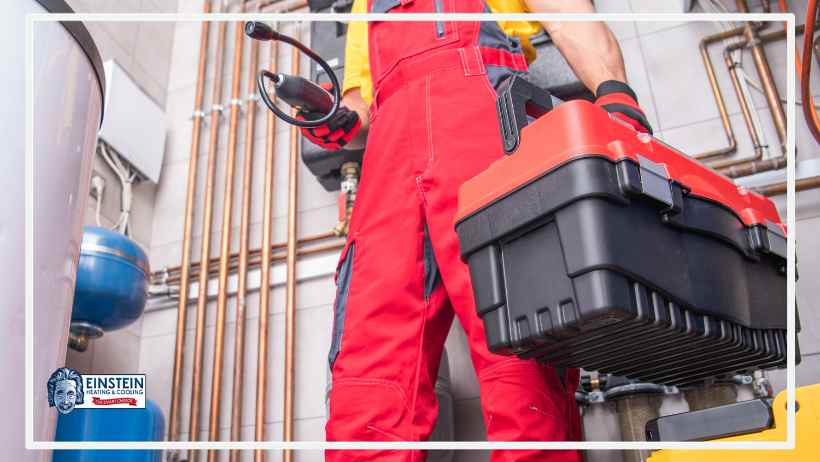
7. Flexibility
Cooling Capability
Explore the cooling capabilities of each system for year-round comfort.
- Furnace:
- Pros: Furnaces do not provide cooling capabilities and require a separate air conditioning system for temperature control during warmer months.
- Cons: Additional equipment and maintenance costs for cooling should be factored into the overall home comfort strategy.
On the other hand, heat pumps offer a two-in-one solution.
- Heat Pump:
- Pros: Heat pumps offer both heating and cooling functions in one unit, providing year-round comfort with a single system.
- Cons: In colder climates, supplementary heating may be needed during winter, emphasizing the need for a backup heat source in extreme weather conditions.
8. Noise Level
Operational Noise
Considering the noise level of each system is crucial for maintaining a peaceful indoor environment.
- Furnace:
- Pros: Furnaces generally operate quietly, contributing to a serene living space without disruptive noise.
- Cons: Some older furnaces may produce more noise during operation, requiring homeowners to consider newer, quieter models.
- Heat Pump:
- Pros: Heat pumps are known for their relatively quiet operation, providing comfort without significant noise disturbances.
- Cons: Depending on the specific model and installation, some heat pumps may produce a low hum during operation, necessitating consideration of noise levels based on individual preferences.
9. Installation Location
Space Requirements
The physical requirements and spatial considerations for installing each system impact the overall feasibility.
- Furnace:
- Pros: Furnaces, particularly forced-air systems, are versatile in terms of installation locations, often fitting well within basements, attics, or dedicated utility rooms.
- Cons: However, the need for ductwork may limit placement options, and considerations for fuel storage (in the case of oil furnaces) should be taken into account.
- Heat Pump:
- Pros: Heat pumps are often more compact and flexible in terms of installation locations, requiring less space than traditional furnaces.
- Cons: Outdoor components of heat pumps, such as the condenser unit, may require careful placement to ensure proper airflow and efficiency.
10. Aesthetics
System Appearance
Considering the visual impact of each system within the home contributes to the overall satisfaction of homeowners.
- Furnace:
- Pros: Furnaces are often tucked away in utility areas, minimizing their visual impact on living spaces.
- Cons: The presence of ductwork or the need for an oil storage tank may impact aesthetics, requiring strategic planning for installation.
- Heat Pump:
- Pros: Heat pumps, especially ductless models, offer flexibility in placement and are less obtrusive in terms of aesthetics.
- Cons: Outdoor components may be visible, requiring thoughtful placement or landscaping considerations to enhance overall curb appeal.
Furnace vs heat pump: which should I choose for my Bend home?
- Climate Considerations:
- Bend, Oregon experiences a high desert climate with cold winters and warm summers.
- Furnaces, particularly those powered by natural gas or oil, are well-suited for providing reliable and efficient heating during extremely cold temperatures.
- Efficiency in Cold Conditions:
- Furnaces excel in extremely cold conditions, quickly generating and distributing warm air throughout the home.
- Heat pumps, while efficient in moderate climates, may face challenges in Bend’s winter temperatures that often drop below freezing.
- Supplementary Heating:
- Heat pumps may require supplemental heating sources, such as electric resistance heaters, to maintain comfort during colder periods.
- Furnaces, with their capacity for robust heating, maybe more dependable in Bend’s colder weather without the need for additional heating sources.
- Environmental Considerations:
- While both systems have environmental impacts, the choice between a furnace and a heat pump may also depend on individual environmental preferences and priorities.
- Installation Costs:
- Consideration of upfront installation costs is crucial, with furnaces often having lower initial costs compared to heat pump systems.
- Individual Preferences:
- Homeowners may have varying preferences, and factors such as noise level, system aesthetics, and cooling capabilities may influence the decision between a furnace and a heat pump.
Why you should choose Einstein Heating and Cooling
With a team of highly skilled technicians, Einstein Heating and Cooling brings a wealth of experience to your heat pump and furnace needs. Our HVAC technicians are adept at navigating the intricacies of both furnace and heat pump systems, ensuring precise installations tailored to your specific needs. Beyond installation, our commitment to excellence extends to comprehensive maintenance services, designed to prolong the lifespan and optimize the efficiency of your heating systems. We understand the critical role these systems play in your home’s comfort, especially during winter, and our responsive repair services prioritize quick and effective solutions.
Conclusion
In the furnace vs. heat pump debate, there is no one-size-fits-all solution. The decision ultimately hinges on factors such as climate, budget, and personal preferences. Homeowners looking for HVAC technicians should also carefully weigh the pros and cons of each system, considering their specific needs and the long-term implications of their choice. Whether opting for the robust warmth of a furnace or the energy-efficient versatility of a heat pump, a well-informed decision ensures comfort throughout the winter months. Make sure to maintain your heating systems properly and call Einstein Heating and Cooling for all your furnace and heat pump needs.
